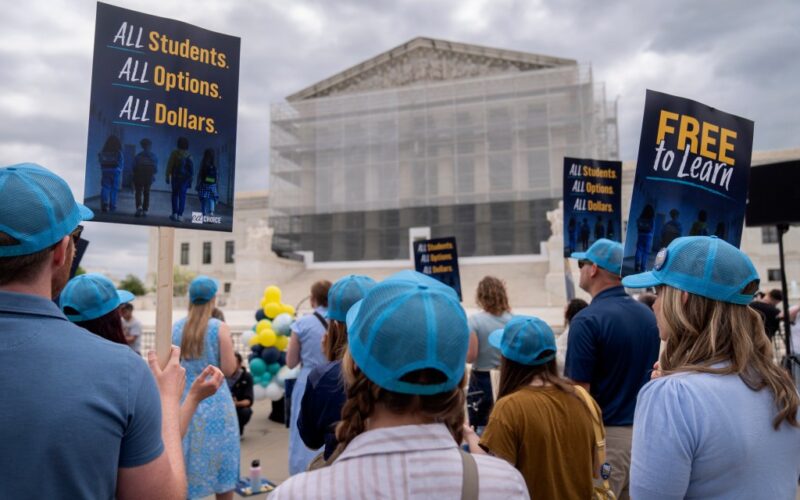Should a blatantly sectarian educational institution qualify for public funding as a charter school? The Supreme Court wrestled with the question Wednesday. The answer must be no.
Charter schools are public schools; we’ve said this many times, as have fellow advocates for the innovative instructional models they deliver. They are free and open to all, with limited seats typically distributed by random lottery. What distinguishes them from district-run schools is simply that they are privately managed, which means out from under the local education bureaucracy, including the teachers union. That gives them flexibility and the ability to take risks that can’t be made in more hidebound traditional schools.
Their quality, like the quality of other public schools, is uneven — but the model as a whole has been a success. Kids in charters tend to score higher in core subjects than in district schools.
But with flexibility comes responsibility and accountability, and for charters, that means living up to the terms of their agreement with the government, lest they get shut down. It’s a common boast that charters must perform or else. The same cannot be said of many lackluster district schools.
St. Isidore of Seville is a virtual charter school looking to open in Oklahoma. It’s a Catholic school. Its mission statement is explicitly religious, which is to say teaching students about the Father, the Son and the Holy Spirit is every bit as important to its educators as imbuing them with knowledge and skills in science, history, math and English.
It’s the school’s right to teach religion, but not to get taxpayer money in order to do that. To allow such a school to function as a public school would be to endorse state-funded religious indoctrination of children. That is directly contrary to the American way.
We aren’t among those who say there must be a hard, high, impenetrable barrier between church and state. We were OK with faith-based institutions doing some essential secular work under President George W. Bush. It’s fine for a town square to be decked out in Christmas and Chanukah symbols. All Americans must take care not to turn the First Amendment’s ban on establishment of religion from becoming a license to discriminate against religion.
In the schooling context, this means that when and if the government runs a constitutional voucher program, in which the government makes funding available to parents to direct as they see fit, it’s difficult if not impossible to exclude religious schools.
But charters are different. They are state funded. If they can proselytize, there’s essentially no meaningful prohibition of the state using its power to indoctrinate in religious faith.
As Justice Elena Kagan pointed out in oral argument, a religious public school might well find it contrary to its core mission to teach the scientific fact of evolution. As Justice Sonia Sotomayor (a graduate of Blessed Sacrament School and Cardinal Spellman High School in the Bronx) pointed out, government would have a hell of a time letting Catholics or Protestants set up a school but saying no to Jews or Muslims.
Oklahoma’s attorney general had it exactly right: When an institution is a direct extension of the state, it cannot also serve as an agent of a religious faith. Many nations formally commingle religious faith and public schooling. America, thank God, has always been different.








